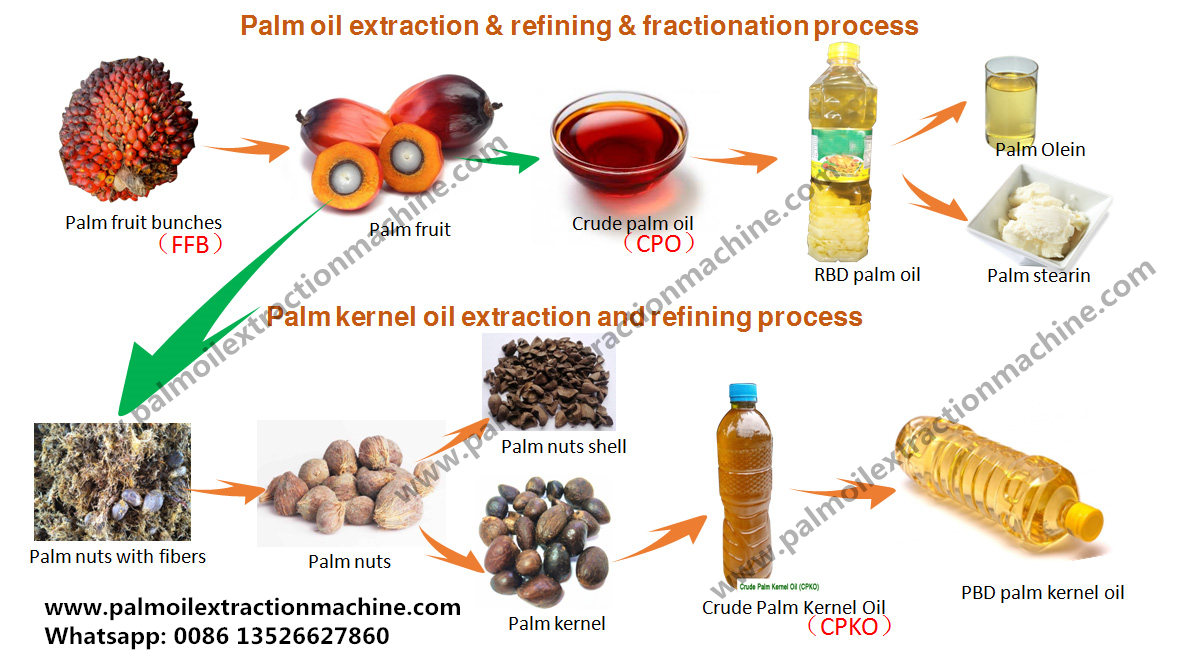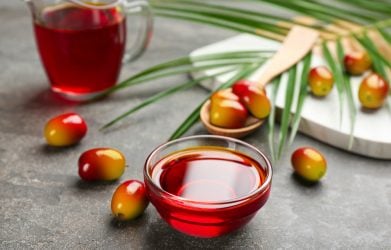The Ubiquitous Palm Oil: A Deep Dive Into Its Presence In Everyday Products
The Ubiquitous Palm Oil: A Deep Dive into Its Presence in Everyday Products
Related Articles: The Ubiquitous Palm Oil: A Deep Dive into Its Presence in Everyday Products
Introduction
With enthusiasm, let’s navigate through the intriguing topic related to The Ubiquitous Palm Oil: A Deep Dive into Its Presence in Everyday Products. Let’s weave interesting information and offer fresh perspectives to the readers.
Table of Content
The Ubiquitous Palm Oil: A Deep Dive into Its Presence in Everyday Products

Palm oil, a versatile and widely used vegetable oil derived from the fruit of the oil palm tree, has become an integral part of our daily lives. Its unique properties and widespread availability have made it a staple ingredient in a vast array of products, from food and cosmetics to biofuels and detergents. While its presence is often overlooked, understanding the role of palm oil in our consumption patterns is essential for making informed choices about our environmental and ethical impact.
The Versatility of Palm Oil: A Look at Its Properties
Palm oil’s versatility stems from its unique chemical composition and physical properties. It is a semi-solid oil at room temperature, possessing a high melting point and a rich, buttery texture. This characteristic makes it suitable for various applications, particularly in food processing.
- High Saturated Fat Content: Palm oil boasts a high content of saturated fats, contributing to its stability and shelf life. This property is particularly valuable in applications where extended storage is crucial, such as in packaged foods.
- Rich in Vitamin E: Palm oil is a natural source of vitamin E, an antioxidant that protects against cell damage and promotes healthy skin. This makes it a desirable ingredient in cosmetics and skincare products.
- Low Cost and High Yield: Palm oil is relatively inexpensive to produce, thanks to its high yield per unit of land. This economic advantage has contributed to its widespread use in various industries.
A Closer Look at Palm Oil’s Applications
The versatility of palm oil has led to its widespread use in a vast range of products, impacting our daily lives in numerous ways.
Food Products:
- Cooking Oils and Margarine: Palm oil’s high smoke point and neutral flavor make it a popular choice for cooking oils and margarine. Its ability to withstand high temperatures without breaking down makes it ideal for frying and baking.
- Processed Foods: Palm oil is widely used in processed foods, including baked goods, snacks, and instant noodles. Its affordability and ability to enhance texture and shelf life make it a preferred ingredient in mass-produced food items.
- Chocolate and Confectionery: Palm oil is a key ingredient in chocolate and confectionery products. Its unique texture and ability to create a smooth, creamy mouthfeel contribute to the desirable qualities of these treats.
- Dairy Products: Palm oil is used in some dairy products, such as ice cream and yogurt, to enhance texture and creaminess.
Cosmetics and Personal Care:
- Soaps and Detergents: Palm oil’s cleansing properties make it a common ingredient in soaps and detergents. Its ability to emulsify dirt and grime makes it effective in removing stains and cleaning surfaces.
- Moisturizers and Skincare Products: Palm oil’s moisturizing properties and rich vitamin E content make it a popular ingredient in skincare products. Its ability to retain moisture and protect the skin from damage makes it beneficial for dry and sensitive skin.
- Hair Care Products: Palm oil is used in hair care products, such as shampoos and conditioners, to add shine and softness to hair. Its ability to nourish and protect the hair shaft makes it beneficial for dry and brittle hair.
Biofuels and Other Applications:
- Biodiesel: Palm oil can be converted into biodiesel, a renewable fuel source that can be used in vehicles and other machinery. Its use as a biofuel offers a sustainable alternative to fossil fuels.
- Industrial Lubricants: Palm oil’s lubricating properties make it suitable for use in industrial machinery and equipment. Its ability to reduce friction and wear can improve efficiency and longevity.
- Bioplastics: Palm oil can be used to produce bioplastics, a sustainable alternative to traditional plastics derived from fossil fuels. Bioplastics offer a more environmentally friendly option for packaging and other applications.
The Environmental and Ethical Concerns of Palm Oil Production
While palm oil offers numerous benefits, its production has raised significant environmental and ethical concerns.
- Deforestation and Habitat Loss: The expansion of palm oil plantations has led to widespread deforestation, destroying valuable ecosystems and threatening biodiversity. Large swathes of rainforest, peatlands, and other critical habitats have been cleared to make way for oil palm plantations.
- Loss of Biodiversity: Deforestation and habitat loss have resulted in the decline or extinction of numerous plant and animal species, including endangered orangutans, tigers, and elephants. The destruction of their natural habitats has disrupted their ecosystems and threatened their survival.
- Social and Labor Issues: Palm oil production has been linked to social and labor issues, including forced labor, land grabbing, and exploitation of workers. Communities living near plantations have faced displacement and loss of livelihoods, while workers often endure poor working conditions and low wages.
Navigating the Complexities of Palm Oil Consumption
The widespread use of palm oil presents a complex dilemma. While it offers numerous benefits, its production has significant environmental and ethical implications. Making informed choices about palm oil consumption requires a nuanced understanding of the issues involved.
Choosing Sustainable Palm Oil Products:
Consumers can play a role in promoting sustainable palm oil production by choosing products certified by organizations that promote responsible practices.
- RSPO (Roundtable on Sustainable Palm Oil): The RSPO is a non-profit organization that sets standards for sustainable palm oil production. Products certified by the RSPO meet specific criteria related to environmental protection, social responsibility, and economic viability.
- Other Certifications: Other organizations, such as the Rainforest Alliance and the Fairtrade Foundation, also certify sustainable palm oil products. These certifications ensure that the oil is produced in a way that minimizes environmental impact and promotes fair labor practices.
Reducing Palm Oil Consumption:
Consumers can also reduce their reliance on palm oil by choosing alternatives whenever possible.
- Alternative Oils: Several alternative oils, such as sunflower oil, rapeseed oil, and olive oil, can be used in place of palm oil in food and cosmetics.
- Palm-Free Products: Some manufacturers are now offering palm-free versions of their products. Consumers can look for these products to reduce their reliance on palm oil.
The Importance of Responsible Production and Consumption
The future of palm oil lies in responsible production and consumption practices. By supporting sustainable palm oil producers and choosing alternatives when possible, consumers can contribute to mitigating the negative impacts of palm oil production.
FAQs about Products Made with Palm Oil
Q: Is palm oil safe to consume?
A: Palm oil is generally considered safe for consumption in moderate amounts. However, some individuals may experience allergic reactions to palm oil.
Q: What are the health benefits of palm oil?
A: Palm oil is a source of vitamin E, an antioxidant that protects against cell damage and promotes healthy skin. It also contains carotenoids, which have been linked to improved eye health.
Q: Are there any alternatives to palm oil?
A: Yes, there are several alternatives to palm oil, including sunflower oil, rapeseed oil, olive oil, and coconut oil.
Q: How can I reduce my palm oil consumption?
A: You can reduce your palm oil consumption by choosing palm-free products, using alternative oils in cooking, and supporting sustainable palm oil producers.
Q: Is all palm oil produced sustainably?
A: No, not all palm oil is produced sustainably. However, consumers can choose products certified by organizations that promote responsible practices.
Q: What are the environmental impacts of palm oil production?
A: Palm oil production has been linked to deforestation, habitat loss, and biodiversity loss.
Q: What are the social impacts of palm oil production?
A: Palm oil production has been linked to social and labor issues, including forced labor, land grabbing, and exploitation of workers.
Tips for Choosing Palm Oil Products
- Check for certifications: Look for products certified by organizations that promote responsible palm oil production, such as the RSPO, Rainforest Alliance, and Fairtrade Foundation.
- Read labels carefully: Pay attention to ingredient lists and look for products that do not contain palm oil or are made with sustainable palm oil.
- Choose alternatives: Opt for products that use alternative oils, such as sunflower oil, rapeseed oil, or olive oil.
- Support palm-free brands: Choose brands that are committed to using palm-free ingredients or are working to source sustainable palm oil.
- Advocate for change: Encourage companies to adopt sustainable practices and support organizations working to address the environmental and social impacts of palm oil production.
Conclusion
Palm oil is a versatile and widely used ingredient in a vast array of products. While it offers numerous benefits, its production has raised significant environmental and ethical concerns. Consumers can play a role in promoting sustainable palm oil production by choosing certified products, reducing their reliance on palm oil, and supporting organizations working to address the issues associated with its production. By making informed choices and advocating for change, we can contribute to a future where palm oil is produced and consumed responsibly, minimizing its negative impacts and maximizing its benefits.








Closure
Thus, we hope this article has provided valuable insights into The Ubiquitous Palm Oil: A Deep Dive into Its Presence in Everyday Products. We thank you for taking the time to read this article. See you in our next article!
You may also like
Recent Posts
- The Art Of Persuasion: A Comprehensive Guide To Makeup Product Label Design
- A Comprehensive Look At Mary Kay Cosmetics: Reviews, Insights, And Considerations
- Affordable Skin Care: A Guide To Effective Products Under INR 100
- Navigating The World Of Mary Kay Discounted Products: A Comprehensive Guide
- The Power Of High-Resolution Images: A Guide To Acquiring The Best Visuals For Your Projects
- The Power Of Reviews: Navigating The World Of Makeup Products
- Swiss Beauty Makeup: A Comprehensive Guide To Quality And Affordability
- Embracing Natural Beauty: Makeup Tips And Techniques For Women Over 50
Leave a Reply